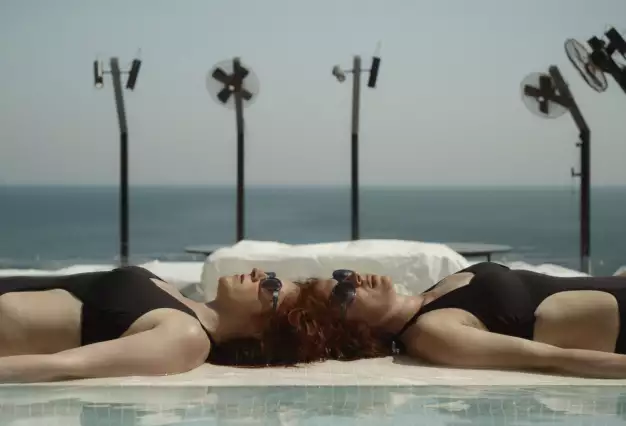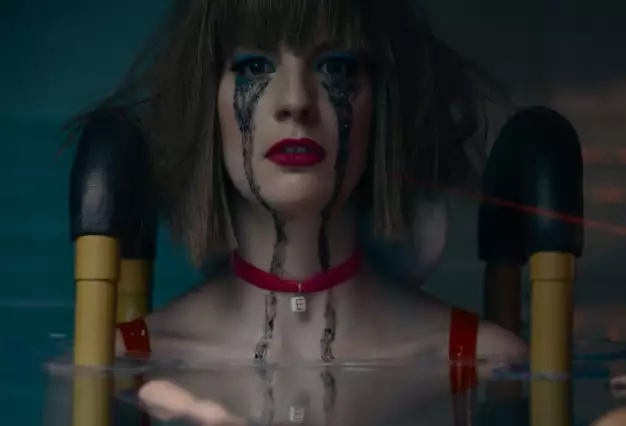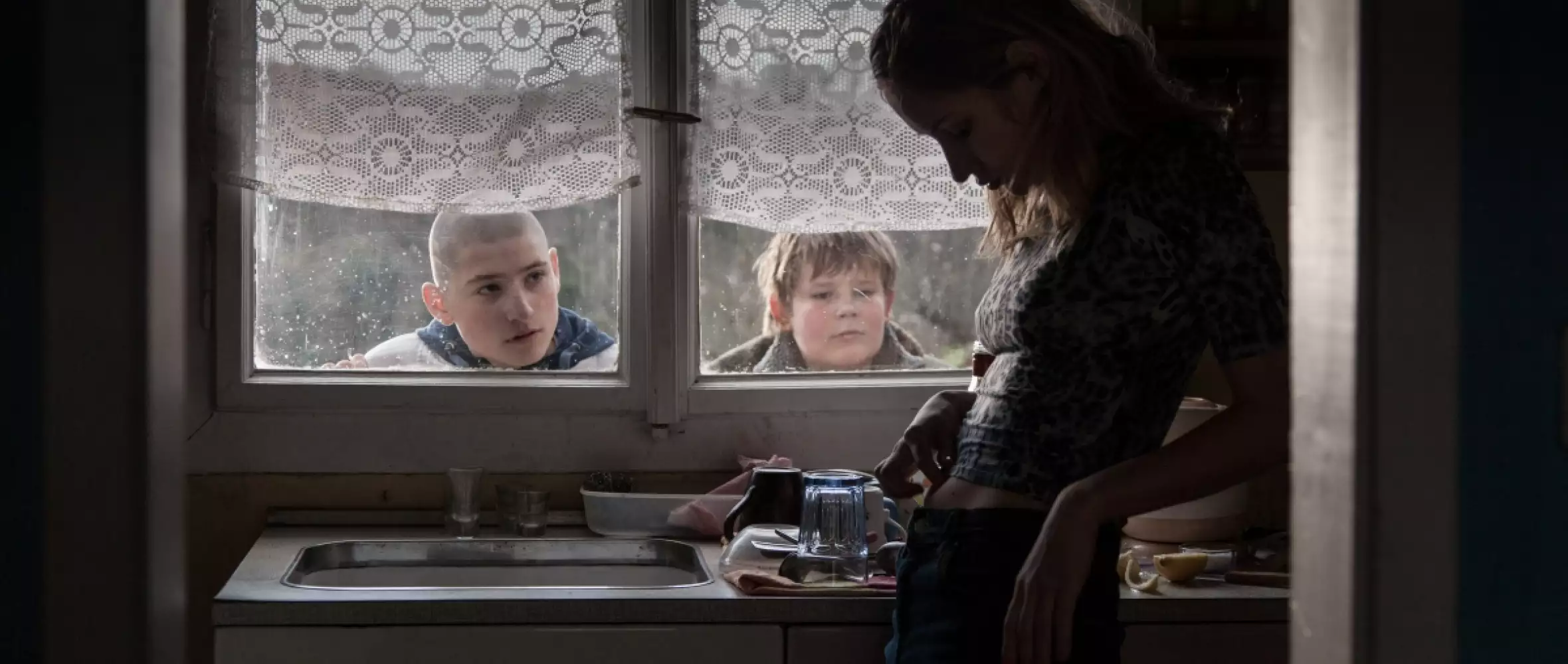
14 August 2018
Winter Flies: Of Freedom and Fabulation
Winter Flies: Of Freedom and Fabulation

Olmo Omerzu is a wunderkind—or so it seems, as the young Slovenian-born, FAMU-trained writer-director sweeps across the festival circuit, raking in awards. After several student short films, his international breakthrough took place at the 2012 Berlinale, where he unveiled his graduation film-cum-feature debut, A Night Too Young. Omerzu’s sophomore outing, Family Film, featured in San Sebastian, while his most recent work, Winter Flies, launched at the bastion of Central and East European cinema—the Karlovy Vary International Film Festival—netting him the Best Director award. Now Winter Flies is about to have its international premiere at Toronto IFF.
The article by Martin Kudláč was published in the Czech Film Magazine / Fall 2018.
Winter Flies marks a creative departure for Omerzu: the first film he’s directed without authoring the script. The writer, Petr Pýcha, a teacher and award-winning author of radio plays, originally penned the story for radio. However, because of the coarse language of the 12- and 14-year-old characters, a badge of its authenticity, the story needed to find a different outlet.
Coincidentally, Pýcha at that time had just encountered A Night Too Young, a film he appreciated for its subtlety and for the actors’ nonprofessional performance. What’s more, according to Omerzu, the feeling was mutual: “What I found interesting was Petr’s sense of dialogue and authenticity.”
Winter Flies opens in media res, with the young bad boy Mára sporting a shaven head and driving a stolen car. Along the way, he bumps into a dorky kid named Heduš, dressed in ragged camo and carrying a BB gun. After a heated argument, Heduš brags about having enough cash for gas, leading the unlikely pair to embark on a trip. Omerzu kicks off his story with the dawn of an improbable friendship that might not materialize under normal circumstances, emphasizing the enigma of the young protagonist fleeing home.
The concealed segments of the plot are of major importance in Omerzu’s storytelling strategy, a puzzle narrative that marks a departure from his two previous works. The director discloses his intention to narrate the story in the vein of Rashomon, presenting two perspectives.
“The film switches between two planes: One is set in the police station, the other is the story [of two boys on a road trip],” Omerzu says. “Interestingly, both planes correspond stylistically.” Yet the story comes out of the mouth of the unreliable narrator Mára, a plot device the director harnesses in order to convey the unspoken amid the whirlwind of truth and lies.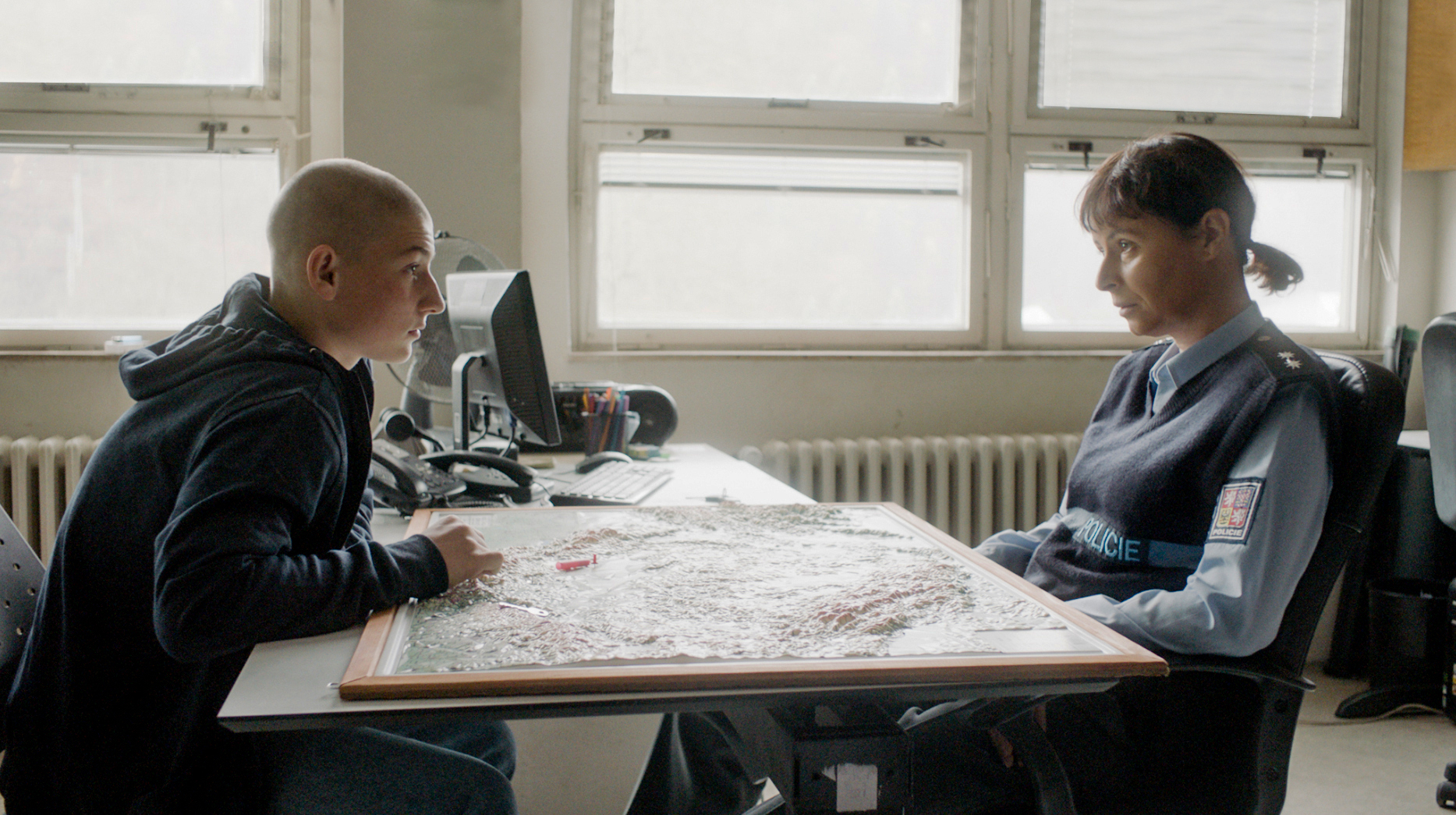
The youngsters’ adventures are recounted in retrospect as Mára, detained at the police station, recounts their exploits while a policewoman tries to establish his identity. This collision of two worlds—one of children, one of adults—in a single space is reminiscent of A Night Too Young and Family Film. Yet in Winter Flies, Omerzu downplays the conflict to embrace adventure over drama while preserving the tension underneath the surface.
“I believe I can afford a more experimental approach that doesn’t alienate the audience but is still slightly anarchistic. In my previous films, I had to be conceptually restrained; in this project, I knew I didn’t have to do that,” Omerzu said. He added that Winter Flies was “a bit looser in terms of form.”
Between Road Movie and Coming-of-Age Story
Omerzu’s films are characterized by a blend of diverse aspects, and this trait is dominant in his latest feature. Besides combining psychologically different characters and having the plot unfold on two planes at once, in the formal dimension Winter Flies is a mutually beneficial marriage of genre and arthouse filmmaking—offering the ideal mixture of broad audience appeal and social message. Hybridization like this isn’t uncommon in Czech film nowadays. Emerging talent Adam Sedlák’s recent feature debut Domestique balances on the edge between a psychological drama about a dysfunctional couple and a horror film of obsession.
Omerzu’s crossover between road movie and coming-of-age story is shrouded in the guise of social realism, especially in its aesthetics, highlighting the poetics of realism. “It is anchored in realism, and the story is based on an actual event. So I decided not to cheat reality, even though we could tweak it here and there. I wanted authentic boys who actually represent something,” said Omerzu. “I’m starting to be drawn to the documentary style of storytelling.”
By working with nonprofessional child actors, Omerzu pushed the directorial envelope further in Winter Flies, extending the limits of improvisation. Despite having a script (“the screenplay is a regular script,” he says), he invested several months in rehearsals and improvisational exercises before letting his leads get anywhere near the script. He also dedicated a great deal of time to finding the right boys, who would embody their characters even before they stepped in front of cameras to perform.
The poetics of realism also entails a visual style that shares similarities with social drama, especially in the bleaker color palette, which not only conveys the season but also carries undertones of melancholia—an uncanny feeling for a boisterous adventure. In this regard, Winter Flies demonstrates an unsentimental approach to, and depiction of, the coming-of-age genre. This is emphasized by Mára’s hijinks, set against the gloomy time of year, in contradiction to the usual summer vacation rollicking.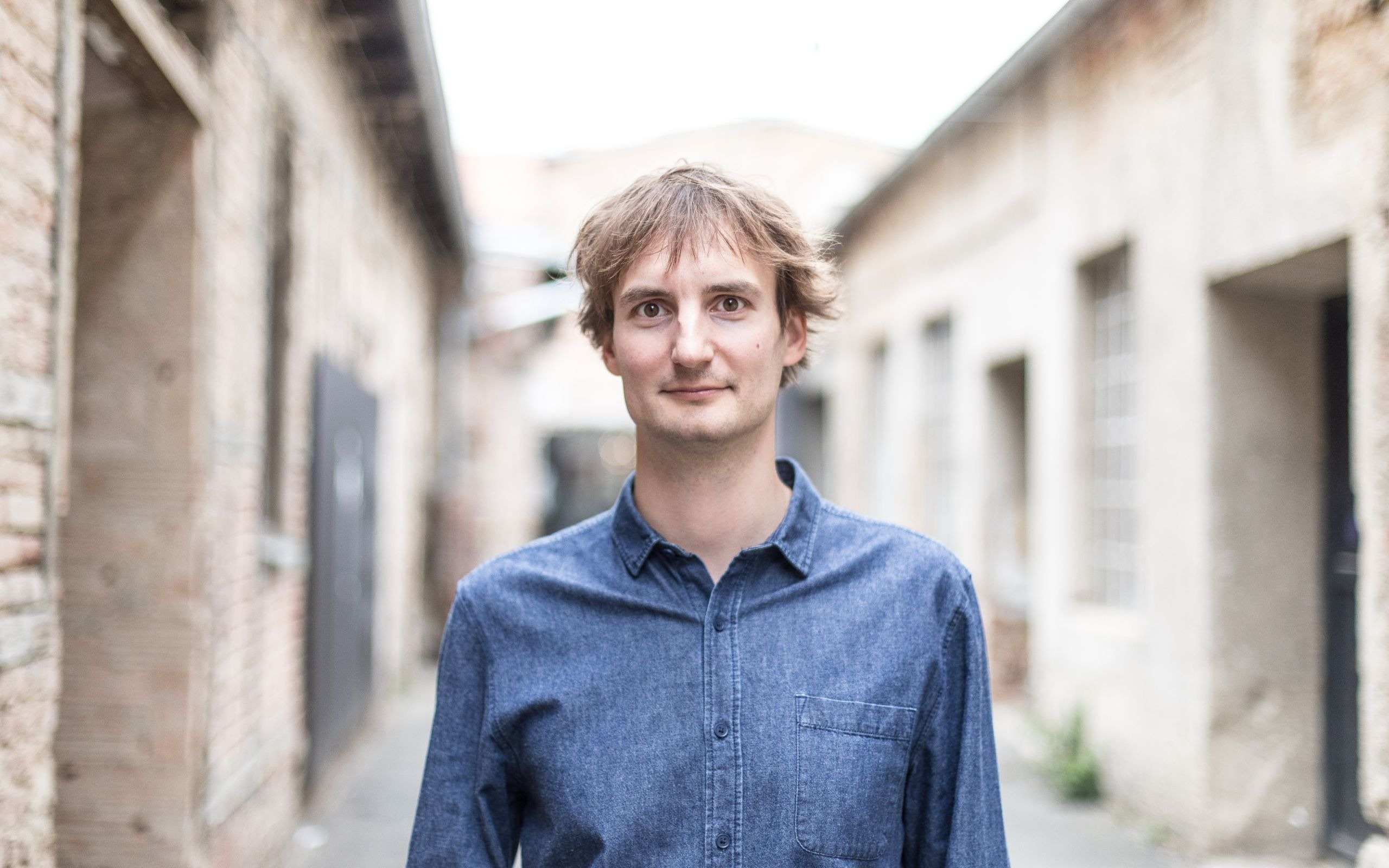
Although a departure from the approach he employed in his previous works, Winter Flies still displays elements easily identifiable as Omerzu trademarks: insertions from the realm of nature; the border collie from Family Film is replaced here by the unruly Jackal, who becomes the third member of the ragtag gang. More importantly, the familiar theme of innocence-in-peril from A Night Too Young and Family Film remains present here, albeit primarily offscreen, by way of suggestion and nuance, compared to Omerzu’s previous works.
The recurring theme of child-adult relationships also prevails, though in a subtler way, apart from the direct confrontation at the police station. Authenticity is conveyed through language, harsh words and macho talk, unsuited to kids of Mára’s age. Mimicking the typical dialogues of grown-ups, Mára and Heduš engage in sexist conversation and erotic flights of fancy, exposing the level of contamination of their world by adults.
Yet, one theme stands out above the rest in Omerzu’s standing inventory, capturing the essence of a coming-of-age road movie while organically intertwining with the motif of childlike imagination: the sense of unbridled freedom.



